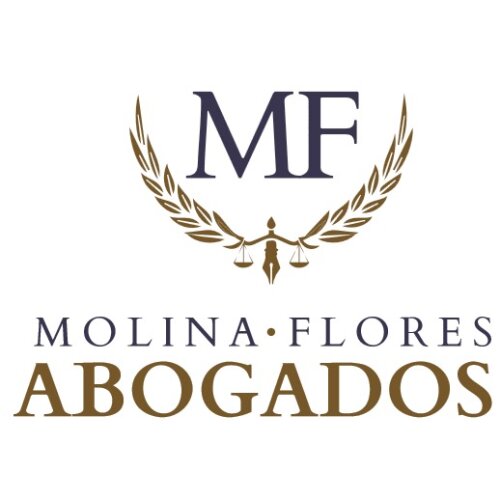Best Constitutional Law Lawyers in Puebla City
Share your needs with us, get contacted by law firms.
Free. Takes 2 min.
List of the best lawyers in Puebla City, Mexico
About Constitutional Law in Puebla City, Mexico
Constitutional Law in Puebla City, Mexico is the branch of law that deals with the interpretation and application of the Mexican Constitution. It ensures that the fundamental rights and freedoms of individuals are protected, and it establishes the powers and limitations of the government. Understanding Constitutional Law is crucial for safeguarding your rights and navigating legal challenges within Puebla City.
Why You May Need a Lawyer
There are several situations where seeking legal help in Constitutional Law may be necessary:
- If your constitutional rights have been violated or you believe a law or government action is unconstitutional.
- If you are involved in a legal dispute that involves constitutional issues, such as freedom of speech, privacy, or discrimination.
- If you need assistance with drafting or reviewing legal documents, such as contracts or agreements, to ensure they comply with constitutional requirements.
- If you are facing criminal charges and need a lawyer to protect your constitutional rights during the legal process.
- If you have questions or concerns regarding the constitutionality of a government policy, law, or regulation.
Local Laws Overview
In Puebla City, Mexico, there are several key aspects of local laws that are particularly relevant to Constitutional Law:
- The Mexican Constitution serves as the supreme law of the land, and any law or government action inconsistent with it can be declared null and void.
- The Constitution guarantees a range of fundamental rights, including the right to equality, freedom of expression and religion, due process, and access to justice.
- The Constitution also establishes the structure of the government, the separation of powers, and the responsibilities and limitations of each branch.
- Puebla City may have specific local laws or regulations that further elaborate on constitutional provisions and address specific issues unique to the city.
Frequently Asked Questions
Q1: What are my fundamental rights under the Mexican Constitution?
A1: The Mexican Constitution guarantees fundamental rights such as the right to life, freedom of expression, privacy, equality, due process, access to justice, and many others. These rights are protected and can be enforced through legal means.
Q2: How can I challenge a law or government action that I believe is unconstitutional?
A2: To challenge a law or government action, you can file a constitutional complaint, known as an "amparo," before a federal court. An amparo is a legal mechanism to protect your constitutional rights and seek judicial review of the law or action in question.
Q3: Can I rely on the Constitution to defend myself in a criminal case?
A3: Yes. The Constitution guarantees various rights for individuals accused of a crime, including the right to legal counsel, the presumption of innocence, and protection against self-incrimination. A lawyer can help ensure these rights are upheld throughout the criminal justice process.
Q4: Are there any limitations on freedom of expression under the Mexican Constitution?
A4: While the Mexican Constitution protects freedom of expression, there are limitations to prevent harm or infringement on other rights. Hate speech, defamation, incitement to violence, and engaging in false advertising are prohibited. It's important to understand the boundaries of protected speech and seek legal advice if you have concerns.
Q5: How can I access legal aid or support in Constitutional Law cases?
A5: For free or low-cost legal support, you can explore organizations such as the Mexican Bar Association, human rights organizations, or legal aid clinics. These entities often provide legal assistance and guidance in Constitutional Law matters. Additionally, you can consult with private attorneys specializing in Constitutional Law.
Additional Resources
Here are some resources, governmental bodies, and organizations that can provide valuable assistance in matters related to Constitutional Law:
- Supreme Court of Mexico: Provides information on constitutional jurisprudence, landmark cases, and legal resources. Website: www.scjn.gob.mx
- National Human Rights Commission (CNDH): An autonomous governmental body dedicated to promoting and protecting human rights in Mexico. Website: www.cndh.org.mx
- Mexican Bar Association (BMA): A professional association of lawyers, offering legal resources, referrals, and assistance. Website: www.bma.org.mx
- Puebla City Legal Aid Clinics: Local legal aid clinics that provide free or low-cost legal assistance to individuals in need. Contact your local government or search online directories for specific clinics available in Puebla City.
Next Steps
If you require legal assistance or have any concerns related to Constitutional Law in Puebla City, consider taking the following steps:
- Assess the nature of your legal problem and determine whether it involves constitutional issues.
- Research local legal resources, governmental bodies, and organizations that can provide assistance.
- Contact a lawyer specializing in Constitutional Law in Puebla City for a consultation.
- Compile relevant documents and information to present to your lawyer during the consultation.
- Discuss your concerns and goals with the lawyer and follow their guidance on the best course of action.
Lawzana helps you find the best lawyers and law firms in Puebla City through a curated and pre-screened list of qualified legal professionals. Our platform offers rankings and detailed profiles of attorneys and law firms, allowing you to compare based on practice areas, including Constitutional Law, experience, and client feedback.
Each profile includes a description of the firm's areas of practice, client reviews, team members and partners, year of establishment, spoken languages, office locations, contact information, social media presence, and any published articles or resources. Most firms on our platform speak English and are experienced in both local and international legal matters.
Get a quote from top-rated law firms in Puebla City, Mexico — quickly, securely, and without unnecessary hassle.
Disclaimer:
The information provided on this page is for general informational purposes only and does not constitute legal advice. While we strive to ensure the accuracy and relevance of the content, legal information may change over time, and interpretations of the law can vary. You should always consult with a qualified legal professional for advice specific to your situation.
We disclaim all liability for actions taken or not taken based on the content of this page. If you believe any information is incorrect or outdated, please contact us, and we will review and update it where appropriate.









